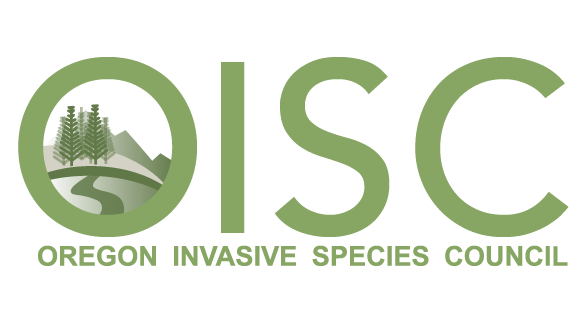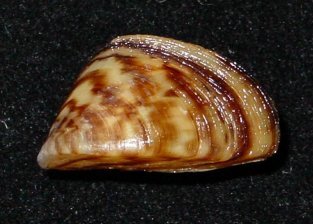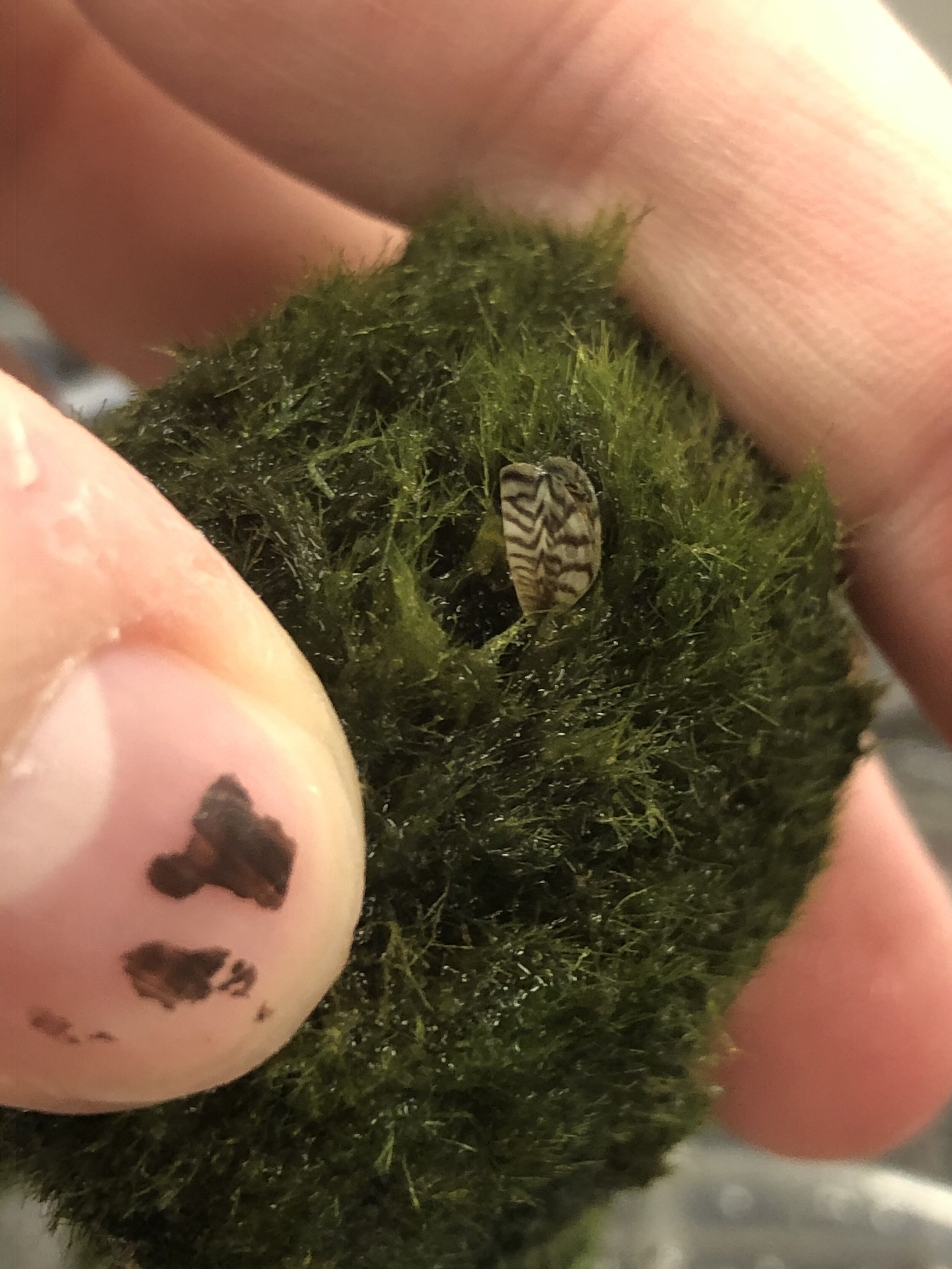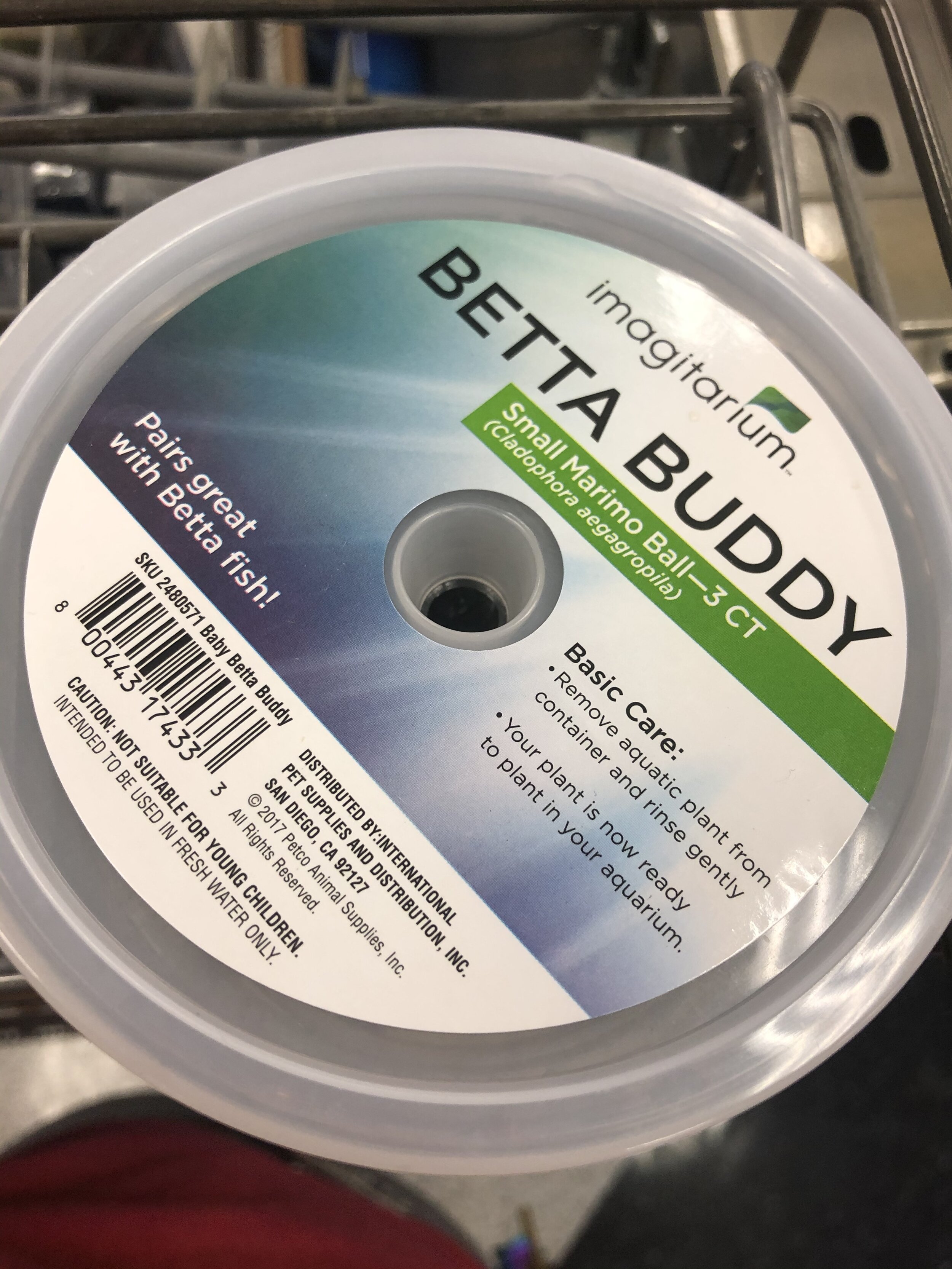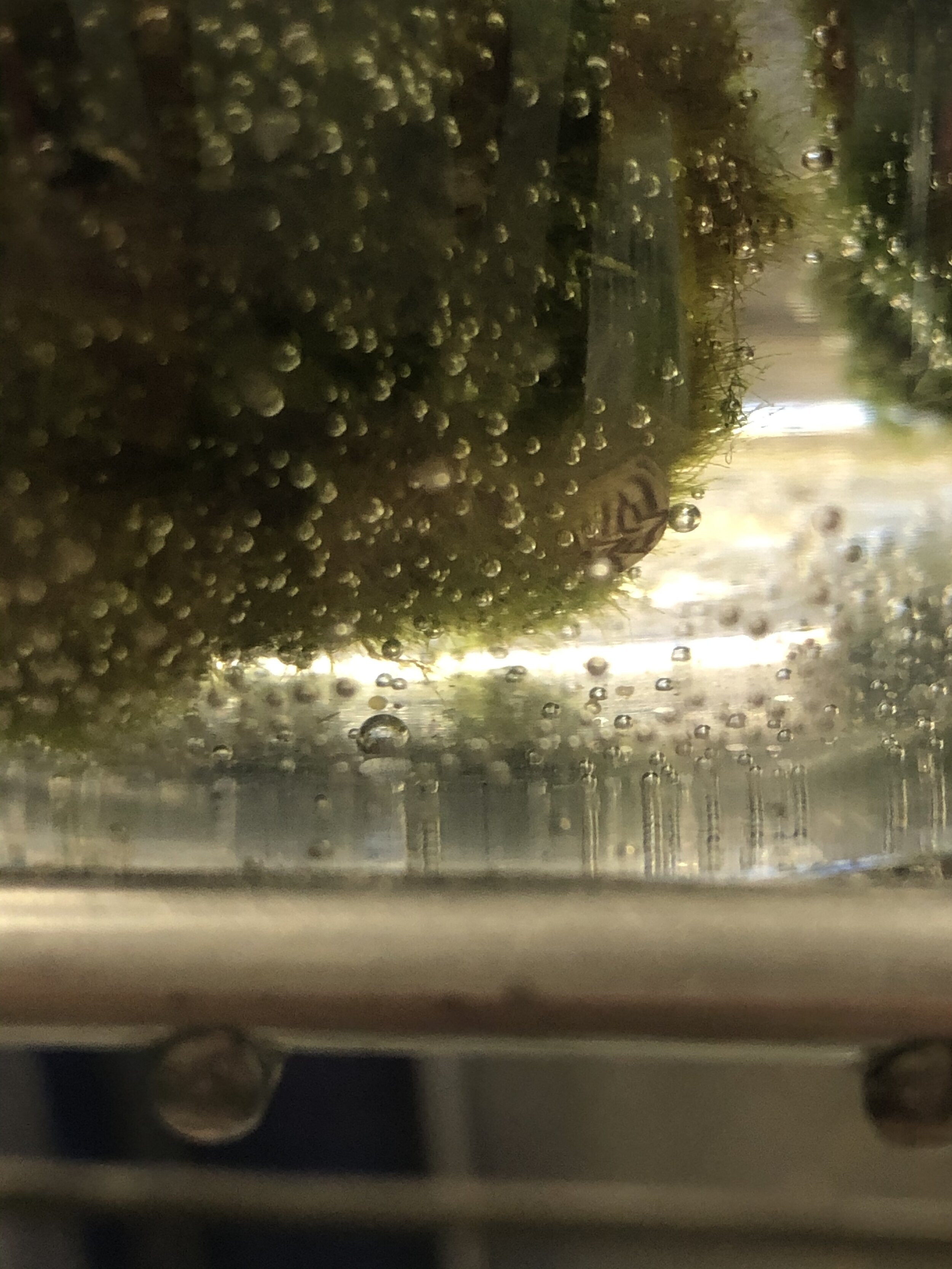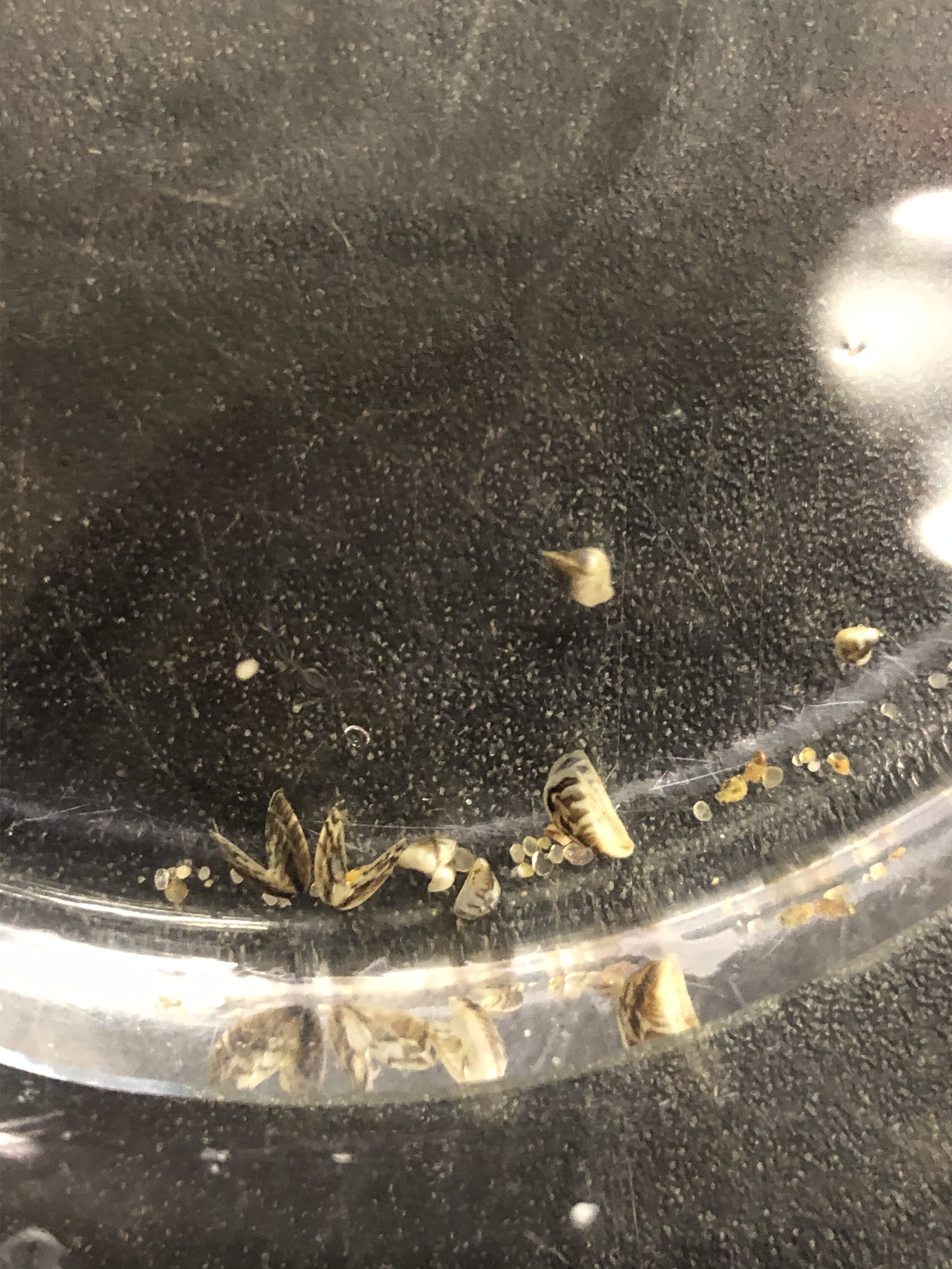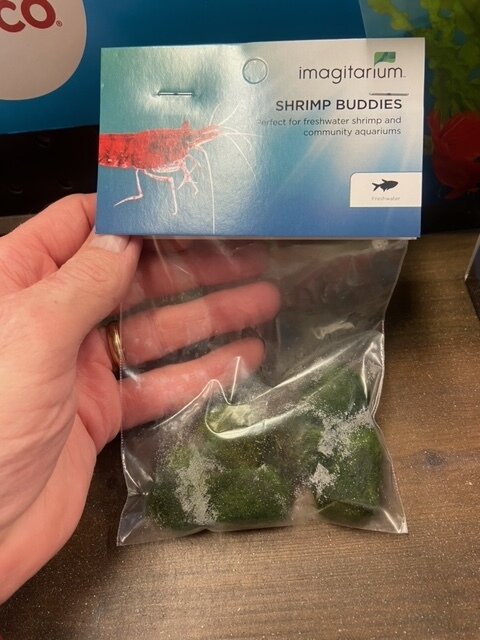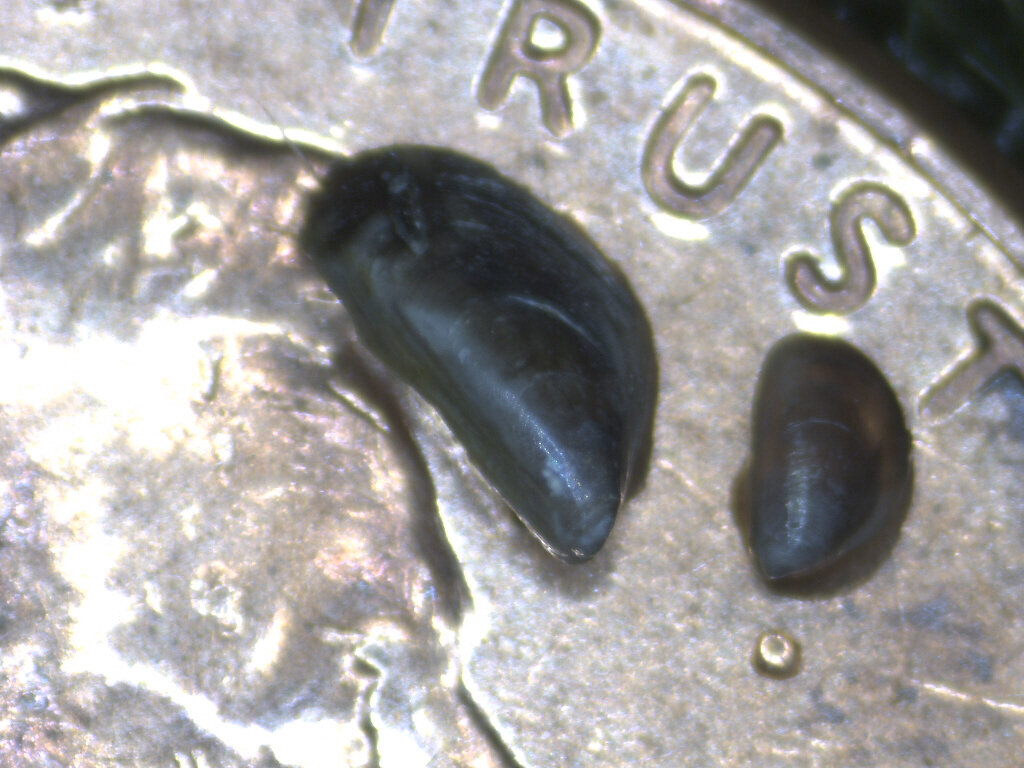What Prompted this Pest Alert?
Zebra mussels were found attached and inside “Betta Buddy Marimo Ball” moss balls*. The first report of a contaminated moss ball came in from an attentive pet store employee in Seattle, WA. The Washington Department of Fish & Wildlife Enforcement quickly responded to and collected the moss ball’s from the store. After hearing this, the Oregon Department of Fish & Wildlife’s Invasive Species Program supervisor visited a store in the Salem, OR area on March 4th, 2021 and found viable zebra mussels in the product. As of March 4, 2021, zebra mussels found on moss balls have been reported in Alaska, Arizona, Arkansas, Colorado, California, Florida, Georgia, Idaho, Indiana, Iowa, Louisiana, Maryland, Montana, Nevada, Nebraska, New York, North Dakota, Oklahoma, Oregon, South Dakota, Texas, Virginia, Vermont, Wisconsin, Wyoming, and Washington.
The California-based distributor of the moss balls has been identified and Petco Regional Management has been contacted. Petco is being extremely cooperative and they are pulling the Moss ball from this distributor off the shelves so they cannot be sold. It’s important to note that this distributor is just one of many distributors that receive the same product from the same source, so please consider all moss balls imported from Ukraine from any distributor as potentially contaminated.
See press release from Oregon Department of Fish & Wildlife: https://www.dfw.state.or.us/news/2021/03_Mar/030321.asp
